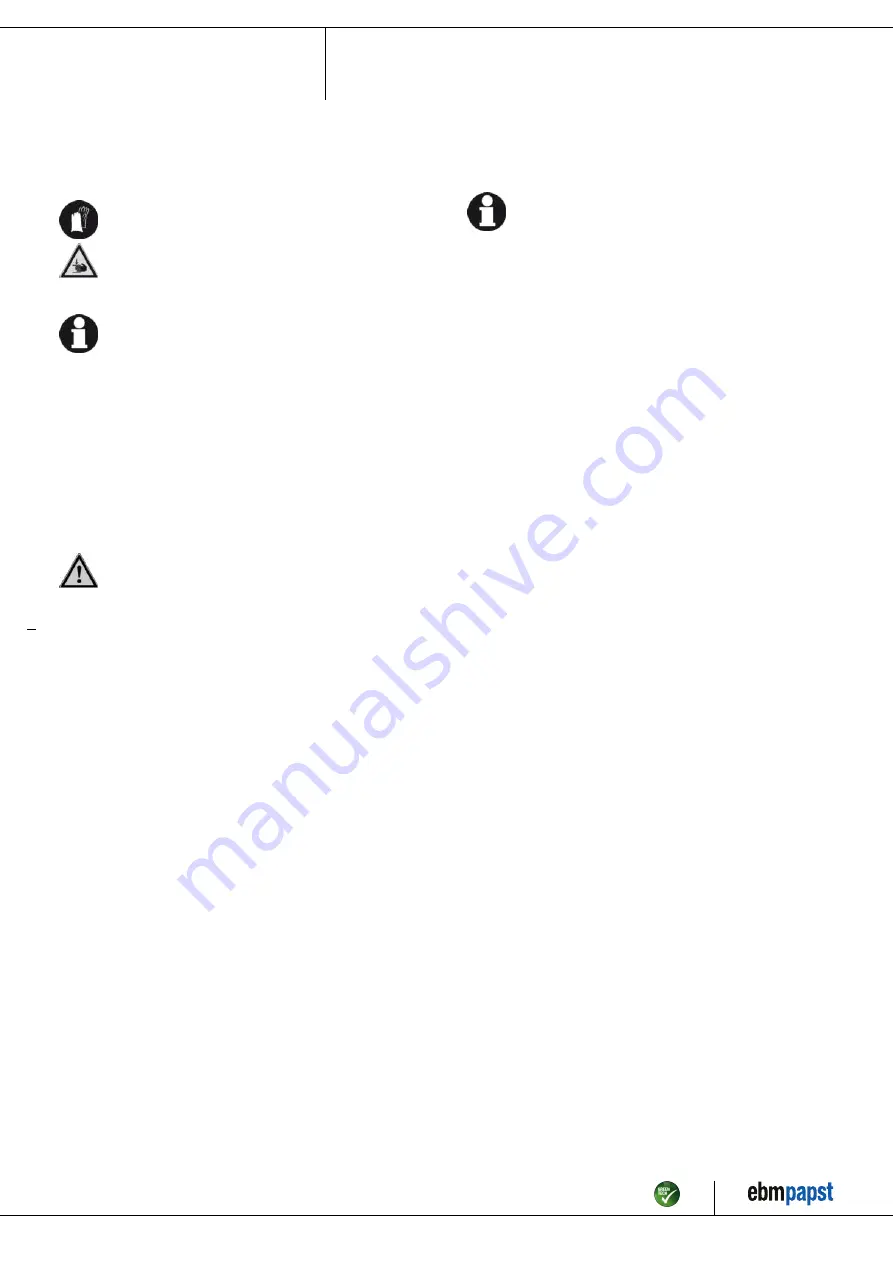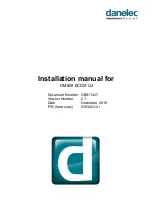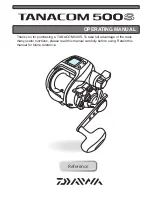
Operating instructions
D1G133-DC13-52
Translation of the original operating instructions
4. CONNECTION AND STARTUP
4.1 Mechanical connection
CAUTION
Cutting and crushing hazard when removing blower
from packaging
→ Carefully remove the blower from its packaging, touching
only the housing. Strictly avoid shocks.
→ Wear safety shoes and cut-resistant safety gloves.
NOTE
Damage to the device from vibration
Bearing damage, shorter service life
→ The fan must not be subjected to force or excessive vibration
from sections of the installation.
→ If the fan is connected to air ducts, the connection should
be isolated from vibration, e.g. using compensators or similar
elements.
→ Ensure stress-free attachment of the fan to the
substructure.
;
Check the device for transport damage. Damaged devices are not to
be installed.
;
Install the undamaged device in accordance with your application.
CAUTION
Possible damage to the device
If the device slips during installation, serious damage can result.
→ Ensure that the device is securely positioned at its place of
installation until all fastening screws have been tightened.
●
The fan must not be strained on fastening.
4.2 Electrical connection
CAUTION
Voltage
The device is a built-in component and has no disconnecting
switch.
→ Only connect the device to circuits that can be switched off
with an all-pole disconnection switch.
→ When working on the device, secure the system/
machine in which the device is installed so as to prevent it
from being switched back on.
NOTE
Water ingress into wires or cables
Water ingress at the customer end of the cable can damage the
device.
→ Make sure the end of the cable is connected in a dry
environment.
4.2.1 Requirements
;
Check whether the information on the nameplate matches the
connection data.
;
Before connecting the device, make sure the power supply matches
the device voltage.
;
Only use cables designed for the current level indicated on the
nameplate.
For determining the cross-section, note the sizing criteria according
to EN 61800-5-1. The protective earth must have a cross-section
equal to or greater than that of the phase conductor.
We recommend the use of 105 °C cables. Ensure that the minimum
cable cross-section is at least
AWG 26 / 0.13 mm².
Operate the device with a safely isolated power supply.
4.3 Connecting the cables
The device has external leads.
●
Connect the cables according to your application. When doing so,
observe Chapter 4.4 Connection diagram.
Item no. 51000-5-9970 · ENU · Change 237495 · Approved 2021-09-13 · Page 6 / 10
ebm-papst Mulfingen GmbH & Co. KG · Bachmühle 2 · D-74673 Mulfingen · Phone +49 (0) 7938 81-0 · Fax +49 (0) 7938 81-110 · [email protected] · www.ebmpapst.com




























